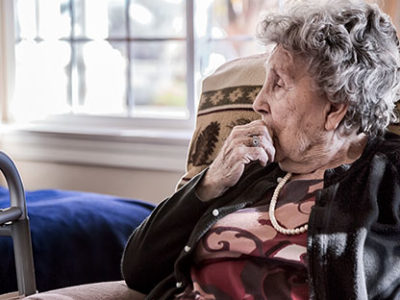 Unfortunately, as loved ones get older, many are no longer able to live without assistance in their own homes. This could be due to an illness, injury or general loss of motor skills. As a result, the loved one requires round-the-clock medical care and must be placed in an assisted living facility or nursing home.
Unfortunately, as loved ones get older, many are no longer able to live without assistance in their own homes. This could be due to an illness, injury or general loss of motor skills. As a result, the loved one requires round-the-clock medical care and must be placed in an assisted living facility or nursing home.
Because of the myriad news stories about instances of nursing home negligence in recent years, you may feel that you owe it to your loved one to find the best facility possible. Fortunately, there are many steps that you can take to accomplish this.
Do your research
Although friends and other family members may have recommendations on facilities, to ensure that your loved one gets the best care at the most affordable rate, it is important for you to do your own research. A good resource to start with is Medicare’s “Nursing Home Compare” website, which rates each facility based on one to five stars. In addition, the website also has the results of health inspections for each facility, which is vital information when deciding on a facility.
As you are considering facilities, it is important to consider distance as among the top priorities. Since the distance the facility is from your home dictates how often you and other family members will visit and be able to monitor your loved one’s care, a nearby facility is generally better than one farther away, even if it is not as highly rated.
Be proactive when visiting the facility
Before making your final decision, it is important to tour the facility to get an idea on how your loved one would be cared for. As the level of care that your loved one receives is often proportional to the number of staff, gauging the staffing levels is probably the most important aspect of your visit. Ask the staff if they work a lot of double shifts or overtime. If the staff is overworked, they are more likely to be stressed, which negatively affects patient care.
It is also important to observe how the staff interacts with other patients, as this is a good indicator of how your loved one would be treated. If the staff calls each patient by his or her name and is respectful, this is a good sign.
In addition, pay particular attention to what the patients are doing. It is generally better to see them actively engaging in activities than staying in their beds. For residents that are bedridden, check to see if the staff brings activities for them to their rooms, so they do not feel isolated.
Finally, it is important to take note of the facility itself. Does it look safe and clean or run down? Be especially leery of facilities that smell like stale urine, as that is an indicator that the facility is not cleaned properly.
An attorney can help
Once you have decided on a facility for your loved one, visit them often and be on the lookout for signs of nursing home abuse and neglect such as bedsores, unexplained bruises, cuts or broken bones, weight loss, sedation, or sudden patient fearfulness or withdrawal. If you suspect that your loved one has suffered abuse or neglect, contact an experienced personal injury attorney to learn more about the legal options available to you.
